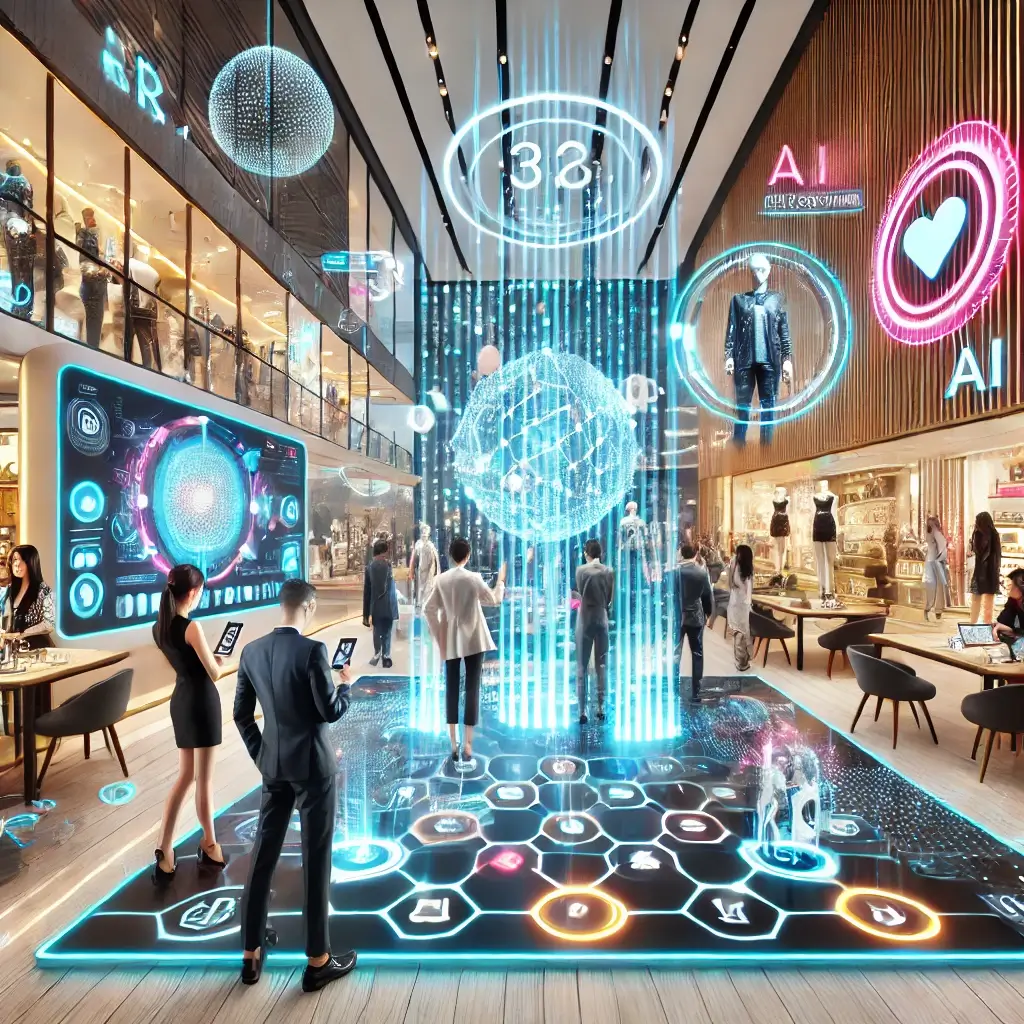The Tangible Revolution in a Digital World
In a rapidly digitizing world, consumers are craving real, tangible experiences that break the monotony of screens. Enter experiential marketing: the strategy that merges immersive brand experiences with cutting-edge technology. Unlike traditional marketing, which often relies on one-way communication, experiential marketing invites consumers to participate actively, creating memorable interactions that resonate long after the campaign ends.
Digital Tools Empowering Authentic Storytelling
The future of experiential marketing is intertwined with advancements in digital tools like augmented reality (AR), virtual reality (VR), and artificial intelligence (AI). However, at its core, the strategy is about storytelling—connecting emotionally with audiences in ways that feel authentic and personal. This article delves into groundbreaking campaigns that have redefined experiential marketing and explores how brands can navigate this evolving landscape.
Revolutionary Campaigns and Insights
Revolutionary Campaigns and Insights
Nike’s Innovation Houses: Where Shopping Becomes Adventure
1. Nike’s “House of Innovation”: A Futuristic Shopping Experience
Nike’s flagship stores, dubbed “Houses of Innovation,” represent a masterclass in combining physical and digital elements. These retail spaces feature AR-powered shoe trials, digital customization stations, and interactive displays that turn shopping into an adventure. Statista’s 2024 report highlights a 25% increase in store visits due to these innovative features.
Transforming Customer Interactions Through Technology
Key Takeaway: Use technology to transform ordinary customer interactions into extraordinary experiences. Retail spaces should evolve into destinations where customers can explore, create, and connect.
Coca-Cola’s Personal Touch: Simplicity that Drives Engagement
2. Coca-Cola’s “Share a Coke”: Simplicity Meets Engagement
Coca-Cola’s campaign—allowing customers to find bottles with their names—is an example of how simplicity can drive engagement. This initiative encouraged millions to share their personalized Coke bottles on social media, turning consumers into brand ambassadors. According to Campaign Monitor (2023), the campaign boosted sales by 7% and increased brand visibility exponentially.
The Power of Personalization in Brand Loyalty
Key Takeaway: Simplicity and personalization are powerful tools. Consumers value being seen as individuals, and campaigns that reflect this create lasting loyalty.
IKEA’s Immersive Experience: Living the Brand Promise
3. IKEA’s “Sleepover in the Store”: Turning Dreams into Reality
What could be more experiential than living a brand’s promise? IKEA’s “Sleepover in the Store” campaign allowed customers to experience their furniture in a unique and intimate setting. Participants not only got a good night’s sleep but also became evangelists for the brand. Forbes (2024) reported a 15% rise in customer retention among those who participated.
Building Emotional Connections Through Immersion
Key Takeaway: Invite customers into your world. Immersive, once-in-a-lifetime experiences can build deeper emotional connections than any advertisement ever could.
Adidas Redefines Retail with Augmented Reality
4. Adidas’ AR-Powered Pop-Up Stores: The New Normal
Adidas leveraged AR technology to create virtual pop-up stores that could be accessed through smartphones. Customers explored digital product showcases and made instant purchases, all within a fully immersive virtual environment. Forbes (2024) cited a 20% increase in campaign-related sales, proving that AR is no longer a novelty but a necessity.
Meeting Consumers in Both Physical and Digital Spaces
Key Takeaway: Harness the potential of AR to meet consumers where they are—in physical or digital spaces. The seamless integration of technology enhances convenience and engagement.
Strategies for Success in the Digital-First Era
Adapting to the Digital-First Era
To succeed in experiential marketing today, brands must align their strategies with shifting consumer behaviors. Key considerations include:
The Trifecta of Modern Marketing Success
Hyper-Personalization: AI and data analytics allow for tailored experiences that feel uniquely crafted for each consumer.
Omnichannel Integration: Ensuring that physical and digital touchpoints work harmoniously to deliver a seamless customer journey.
Sustainability: As consumers grow increasingly eco-conscious, campaigns should reflect a commitment to sustainability, using green practices and materials.
Digital Amplification Through Strategic SEO
For instance, optimizing campaigns for digital platforms can amplify their reach. HubSpot’s 2024 report reveals that 40% of experiential campaigns paired with robust SEO strategies achieved significantly higher engagement rates.
The New Marketing Imperative: Experience Over Exposure
Conclusion
Experiential marketing is no longer a supplementary strategy—it’s a necessity in the digital-first era. Brands like Nike, Coca-Cola, IKEA, and Adidas have demonstrated the immense potential of blending creativity with technology to captivate audiences. As consumer expectations evolve, marketers must innovate continuously, crafting experiences that are not just memorable but also meaningful. By embracing technology, personalization, and sustainability, brands can ensure their campaigns resonate deeply in an increasingly competitive landscape.
Industry Insights and Further Reading
References
Statista. “The Impact of Experiential Retail on Foot Traffic.” Published 2024. [Link]
Campaign Monitor. “Case Study: Coca-Cola’s Viral Marketing Success.” Published 2023. [Link]
Forbes. “Leveraging AR in Experiential Marketing: Adidas’ Success Story.” Published 2024. [Link]
HubSpot. “SEO Strategies for Modern Marketing Campaigns.” Published 2024. [Link]
